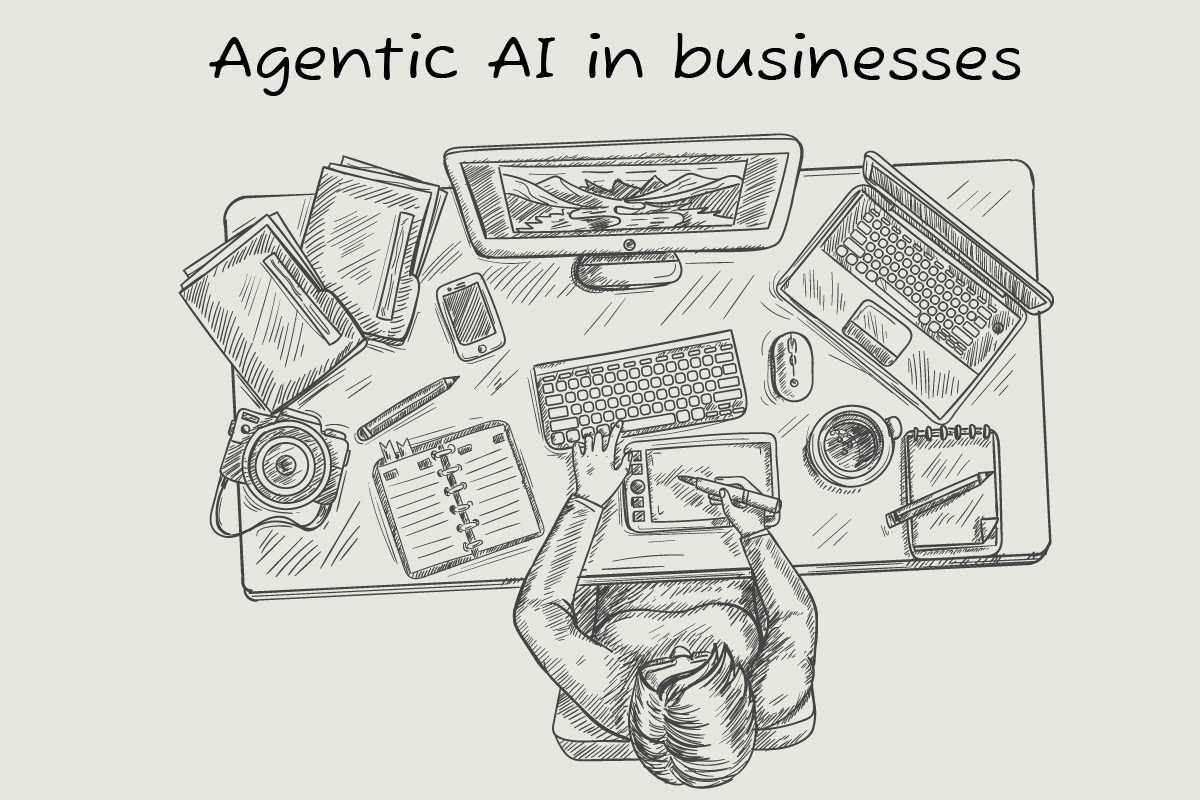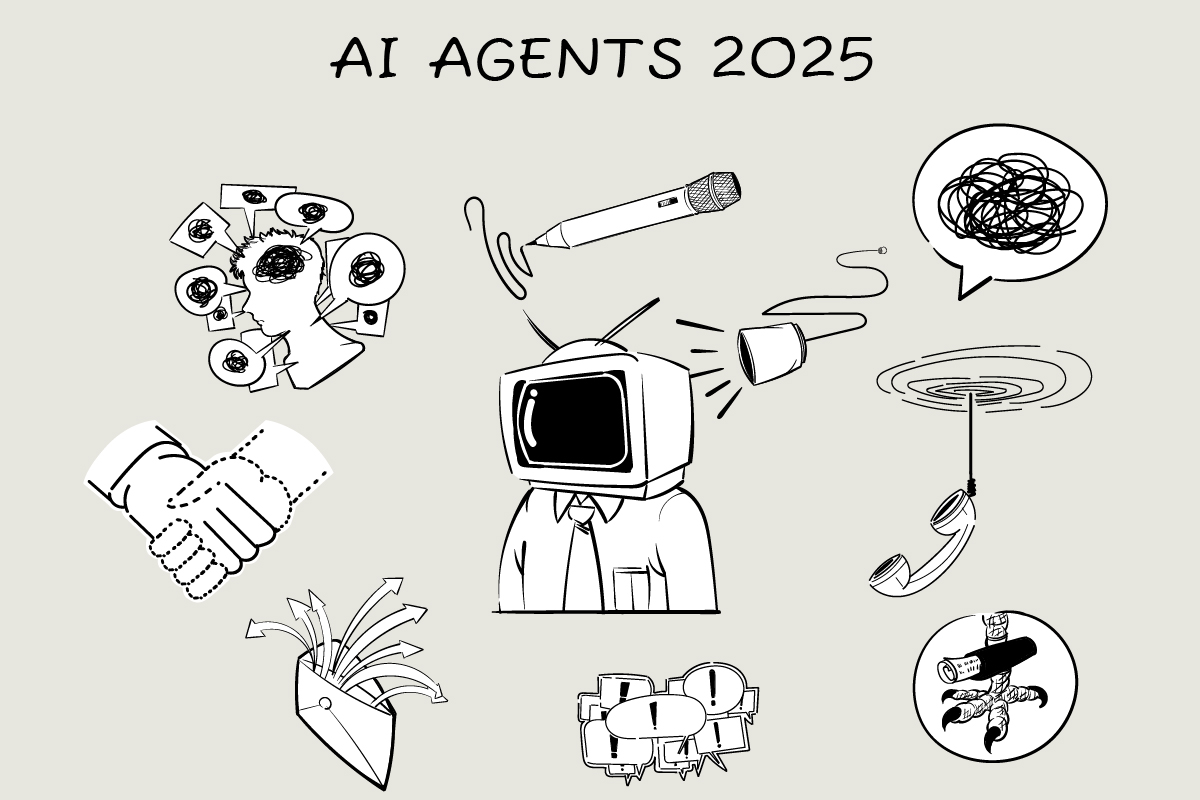7 Key Benefits of Agentic AI for Business: The Complete 2025 Guide
- The Evolution of Business Intelligence: From Passive to Proactive
- Efficiency Unleashed: Automation With Adaptive Intelligence
- Decision Enhancement: From Data to Strategic Insight
- Customer Experience Reimagined: Personalization at Scale
- The Financial Equation: Cost Reduction and Resource Optimization
- Scalability Without Sacrifice: Growing Without Growing Pains
- The Human Element: Transformation Rather Than Replacement
The fluorescent lights buzzed faintly overhead as Mira Chen, operations director at a mid-sized logistics company in Seattle, scrolled through her dashboard. What once required a team of twelve analysts working in shifts now happened automatically—supply chains self-optimizing, customer inquiries resolving without human intervention, and predictive maintenance scheduling itself across a fleet of vehicles. "It's like having an invisible workforce," Chen remarked, gesturing to the status indicators all glowing a reassuring green. "But more importantly, it's changed what my human team actually does. We're solving problems we never had time to address before."
This scene is increasingly common across industries as businesses embrace agentic AI—autonomous artificial intelligence systems that can perceive their environment, make decisions, and take actions to achieve specific goals without constant human oversight. Unlike traditional AI systems that simply respond to queries or follow rigid instructions, agentic AI operates with a degree of independence that transforms how organizations function at a fundamental level.
The Evolution of Business Intelligence: From Passive to Proactive
For decades, business intelligence meant dashboards filled with backward-looking metrics—reports that told you what happened yesterday, last week, or last quarter. Even as AI advanced, many implementations remained glorified automation tools, executing predefined tasks with greater efficiency but little true intelligence.
Agentic AI represents a profound shift in this paradigm. These systems don't just analyze data—they interpret situations, make decisions, and take action autonomously.
"At its heart, agentic AI stands out because it can make its own decisions," explains a recent analysis from CX Today. "While regular AI often operates within fixed parameters, agentic AI can dynamically adjust according to real-time data and contextual understanding."1
This capability transforms how businesses operate across virtually every function, from customer service to supply chain management to financial oversight. The benefits of this transformation are becoming increasingly clear as more organizations implement these technologies.
Efficiency Unleashed: Automation With Adaptive Intelligence
Perhaps the most immediately apparent benefit of agentic AI is its ability to dramatically increase operational efficiency. Unlike traditional automation that breaks down when confronted with exceptions or novel situations, agentic systems can adapt to changing circumstances.
"Automation of repetitive tasks: Agentic AI can automate mundane and repetitive tasks, freeing up employees to focus on more creative and strategic work," notes a recent analysis from Euclea Business School. The same source highlights how these systems enable "streamlined workflows" by "identifying bottlenecks, automating processes, and improving collaboration between departments."2
For businesses, this represents a quantum leap beyond basic automation. An agentic system monitoring inventory doesn't just reorder supplies when they fall below a threshold—it anticipates seasonal demand fluctuations, adjusts for supply chain disruptions, and optimizes order quantities to minimize storage costs while preventing stockouts.
The efficiency advantage extends beyond 24/7 operation. As Domo's recent analysis explains: "Agentic AI can quickly and accurately handle repetitive tasks like data entry or managing IT system updates, freeing employees to focus on more important work. This leads to faster processes and smoother workflows across teams."3
Decision Enhancement: From Data to Strategic Insight
The decision-making capabilities of agentic AI represent perhaps its most transformative benefit for businesses. These systems don't just provide data—they synthesize information from disparate sources, identify patterns, and make recommendations or take actions based on comprehensive analysis.
"AI agents can predict future outcomes based on historical data, enabling proactive decision-making," notes the Euclea report. "AI systems can monitor operations in real-time and make adjustments to optimize performance."2
This capability addresses one of the most persistent challenges in modern business: information overload. Executives and managers often struggle to process the volume of data available to them, leading to decisions based on incomplete information or gut instinct rather than comprehensive analysis.
Gartner's analysis highlights how "agentic AI enhances decision-making by autonomously selecting actions for desired outcomes, improving performance over time. It quickly analyses" vast datasets to identify optimal solutions.4 This speed and comprehensiveness gives businesses implementing agentic AI a significant competitive advantage in rapidly changing markets.
Customer Experience Reimagined: Personalization at Scale
The third major benefit area emerges in customer experience, where agentic AI enables personalization at a scale and level of sophistication previously impossible.
"AI agents can provide personalized recommendations and support to customers, enhancing their experience," reports Euclea. Beyond this basic capability, these systems offer "faster response times" through "AI-powered chatbots [that] can provide instant answers to customer queries, improving satisfaction."2
Perhaps most importantly, agentic AI enables "proactive customer engagement" where "AI systems can anticipate customer needs and proactively offer assistance."2 This shift from reactive to proactive service represents a fundamental evolution in customer experience strategy.
Domo's analysis reinforces this point: "By handling customer queries faster and more accurately, agentic AI can provide a more personalized experience. Businesses can improve response times and resolution rates, increasing customer satisfaction."3
The customer experience benefits extend beyond traditional support functions. Auxiliobits notes that "AI analyzes customer data from multiple sources across the enterprise to offer more comprehensive data about customers," creating a more holistic understanding of customer needs and behaviors.5
The Financial Equation: Cost Reduction and Resource Optimization
For business leaders, the financial benefits of agentic AI provide compelling justification for implementation. These systems reduce costs through multiple mechanisms while simultaneously improving outcomes.
"Automating everyday tasks means fewer manual hours are needed, cutting labor costs," explains Domo's report. "Businesses can run more efficiently without extra expenses, with fewer errors and more consistency."3
Cost benefits extend beyond direct labor savings. By "minimizing errors," providing "fraud detection," and enabling sophisticated "risk assessment," agentic AI reduces costly mistakes and prevents financial losses.2 The Euclea report highlights how these capabilities lead to significant cost savings across operations.
CX Today emphasizes that the efficiency gains from agentic AI "can lead to significant cost reductions and improved decision-making processes."1 This dual benefit—simultaneously reducing costs while improving outcomes—makes agentic AI particularly attractive in competitive industries with thin margins.
Scalability Without Sacrifice: Growing Without Growing Pains
As businesses expand, maintaining efficiency and consistency becomes increasingly challenging. Traditional approaches often require linear increases in staffing and resources to support growth. Agentic AI disrupts this pattern by offering scalability without proportional resource increases.
"As businesses grow, the volume of tasks and data increases. Agentic AI can quickly scale to handle more work without significant resource increases, helping companies maintain efficiency as they expand," explains Domo.3
This scalability advantage is particularly valuable for businesses experiencing rapid growth or seasonal fluctuations in demand. Rather than hiring temporary staff or stretching existing resources, agentic systems can expand or contract capabilities as needed without sacrificing quality or response times.
Consistency and Accuracy: Eliminating Human Variability
Human performance naturally varies based on factors like fatigue, experience, and individual capability. This variability can create inconsistent results across an organization. Agentic AI addresses this challenge by ensuring consistent execution while maintaining flexibility to handle unique situations.
"Agentic AI executes tasks precisely, minimizing human errors and maintaining uniform standards," notes Domo. "Whether processing financial transactions or managing compliance checks, AI agents ensure reliability and adherence to policies at scale."3
This consistency doesn't come at the expense of adaptability. Unlike rigid automation, agentic systems can handle exceptions and novel situations while maintaining adherence to core business rules and standards. This balance of consistency and flexibility represents a significant advantage over both human-only and traditional automation approaches.
The Human Element: Transformation Rather Than Replacement
Despite fears of job displacement, organizations implementing agentic AI often report that these systems transform human roles rather than eliminating them. As Chen's experience in our opening scenario illustrates, agentic AI typically frees human workers to focus on higher-value activities that machines cannot perform.
"By automating repetitive tasks, agentic AI liberates valuable human resources, allowing people to engage in strategic work that drives growth and innovation," explains CX Today.1 This shift enables businesses to maximize the unique creative, strategic, and interpersonal capabilities of their human workforce.
The LinkedIn data referenced in search result6 projects substantial market growth for autonomous AI agents, "from USD 4.8 billion in 2023 to USD 28.5 billion by 2028, at a CAGR of 43.0% during the forecast period." This growth reflects the proven business value these systems deliver across industries.
Conclusion: The Business Case for Agentic AI
As we look toward the remaining years of this decade, agentic AI stands poised to fundamentally transform how businesses operate. The benefits—increased efficiency, enhanced decision-making, improved customer experience, cost reduction, scalability, and consistency—create a compelling business case for implementation across virtually every industry.
Organizations that successfully implement these technologies gain what Gartner identifies as a "crucial evolution in how businesses leverage AI, moving from tools that simply support human decision-making to systems that can actively participate in organisational processes."4
For business leaders considering their technology roadmap, the question isn't whether to implement agentic AI but how quickly and in which domains to begin. As Chen discovered in our opening scenario, the competitive advantages these systems provide make them not merely beneficial but increasingly essential for businesses seeking to thrive in an increasingly complex and fast-moving marketplace.
In the silent revolution happening inside server rooms and cloud instances across the global economy, agentic AI is quietly rewriting the rules of business operations—one autonomous decision at a time.
Footnotes
-
https://www.cxtoday.com/contact-center/agentic-ai-unleashing-autonomous-intelligence-in-a-complex-world/ ↩ ↩2 ↩3
-
https://www.euclea-b-school.com/why-agentic-ai-is-the-key-to-smarter-more-agile-business-operations/ ↩ ↩2 ↩3 ↩4 ↩5
-
https://www.domo.com/blog/agentic-ai-explained-definition-benefits-and-use-cases/ ↩ ↩2 ↩3 ↩4 ↩5
-
https://technologymagazine.com/articles/gartner-how-agentic-ai-is-shaping-business-decision-making ↩ ↩2
-
https://www.auxiliobits.com/get-future-ready-with-ai-powered-autonomous-business/ ↩
-
https://www.linkedin.com/pulse/autonomous-ai-agents-business-deep-dive-dr-agata-slater ↩

